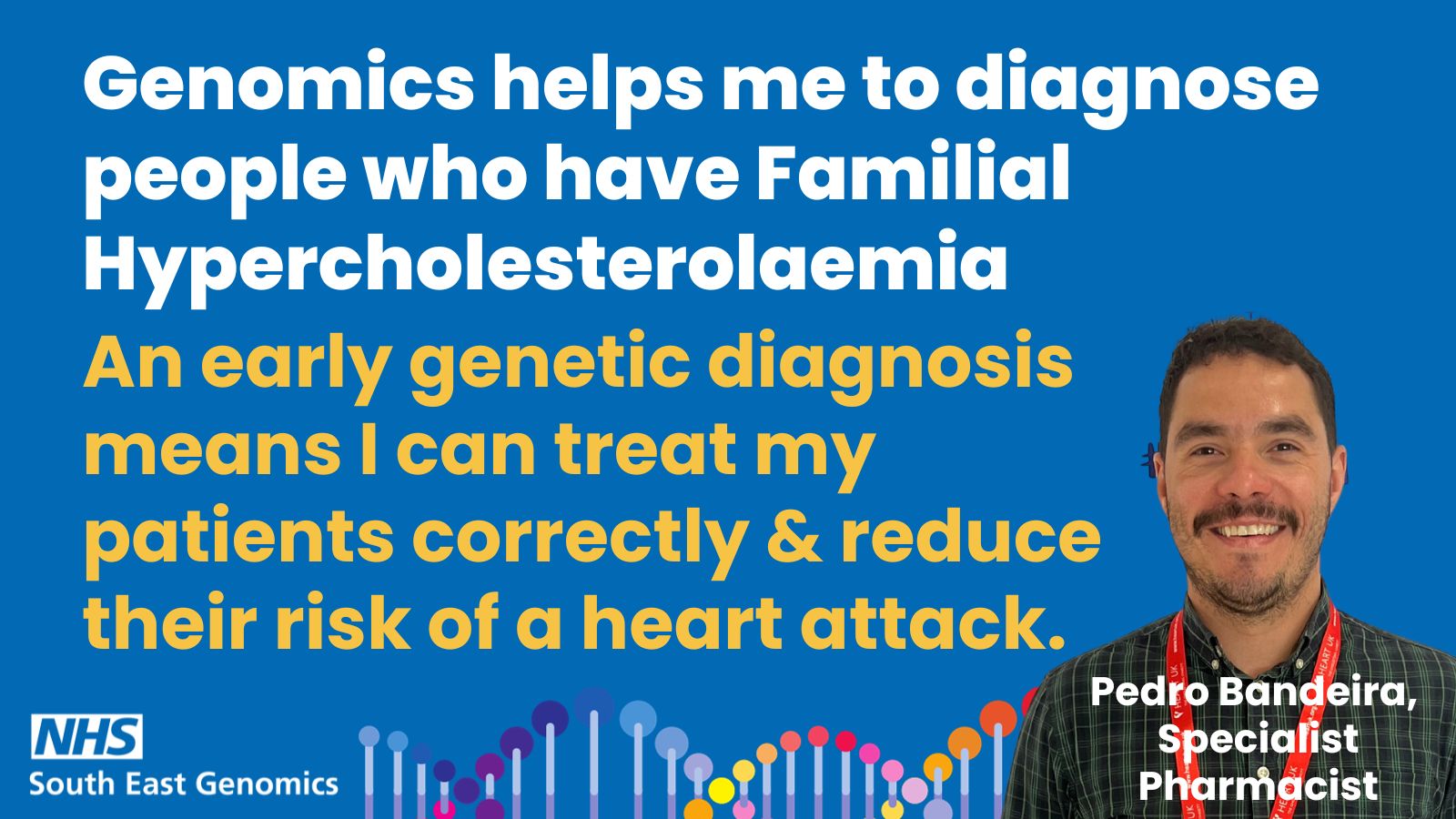
To celebrate World Pharmacist Day, we’re exploring how genomics is changing the way many pharmacists work.
Pedro Bandeira is a senior pharmacist at St. George’s Hospital in London. He specialises in cardiovascular disease and lipid disorders, and runs innovative pharmacist-led cardiovascular risk and lipid optimisation clinics in South London.
At his weekly Cholesterol Clinic, he is seeing patients who have very high cholesterol. Many of them have already had a heart attack or a stroke in the last six months. Some patients have high cholesterol that runs in their family. Patients are referred to Pedro’s clinic if it is suspected they might have Familial Hypercholesterolaemia (FH). It’s an inherited genetic condition that causes your cholesterol levels to be high from birth. Launching the clinic has made it much quicker for patients to be seen meaning that they get started on their treatment earlier.
“Our aim is to prevent our patients from having a heart attack or a stroke. If FH is left untreated, 50% of men and 30% of women will have a heart attack by the age of 50 and 60, respectively. It’s important that we find new ways to diagnose people and get them on the right treatment as quickly as possible, which is where the idea of my Cholesterol Clinic came from. It’s making a huge difference to people!”
Pedro is a trained prescribing pharmacist and has been working in the lipid management clinic for a year. He has also completed a FH masterclass to gain accreditation to provide FH counselling and is seeking to continue his learning in genomics.
“I spend time with my patients exploring their medical and family history, and discussing how we can address risk factors such as high blood pressure, smoking, lifestyle, obesity, and diet. Early identification and treatment of patients with Familial Hypercholesterolaemia is very important. That’s why family history, cholesterol levels and genetic screening is key. We want to prescribe the right medications and implement the best interventions that will prevent any future cardiac issues for them and their families.”
Patients found to be at high risk of having FH are referred for genomic testing which will look for four genetic changes that are linked to FH. People who have these genetic changes have difficulty breaking down cholesterol from their bloodstream and so it builds up and can increase their chances of having a cardiac event. A genetic diagnosis of FH enables Pedro and the lipid service to understand which medication to prescribe as well as opening up doors for genetic testing for their families. Family cascade screening is extremely important as children have a 50% chance of inheriting the condition from their parents. The earlier we can diagnose FH, the greater the opportunity to reduce the risk of long-term conditions and premature death from cardiovascular disease.
Pedro is keen for other pharmacists to learn more about how genomics can benefit cardiovascular and management of lipid disorders. He is already offering training and education in primary care and for anyone who has special interest in this area. You can reach him on Pedro.Bandeira@nhs.net
For anyone interested in learning more about Familial Hypercholesterolaemia, there is a free online masterclass available here.
